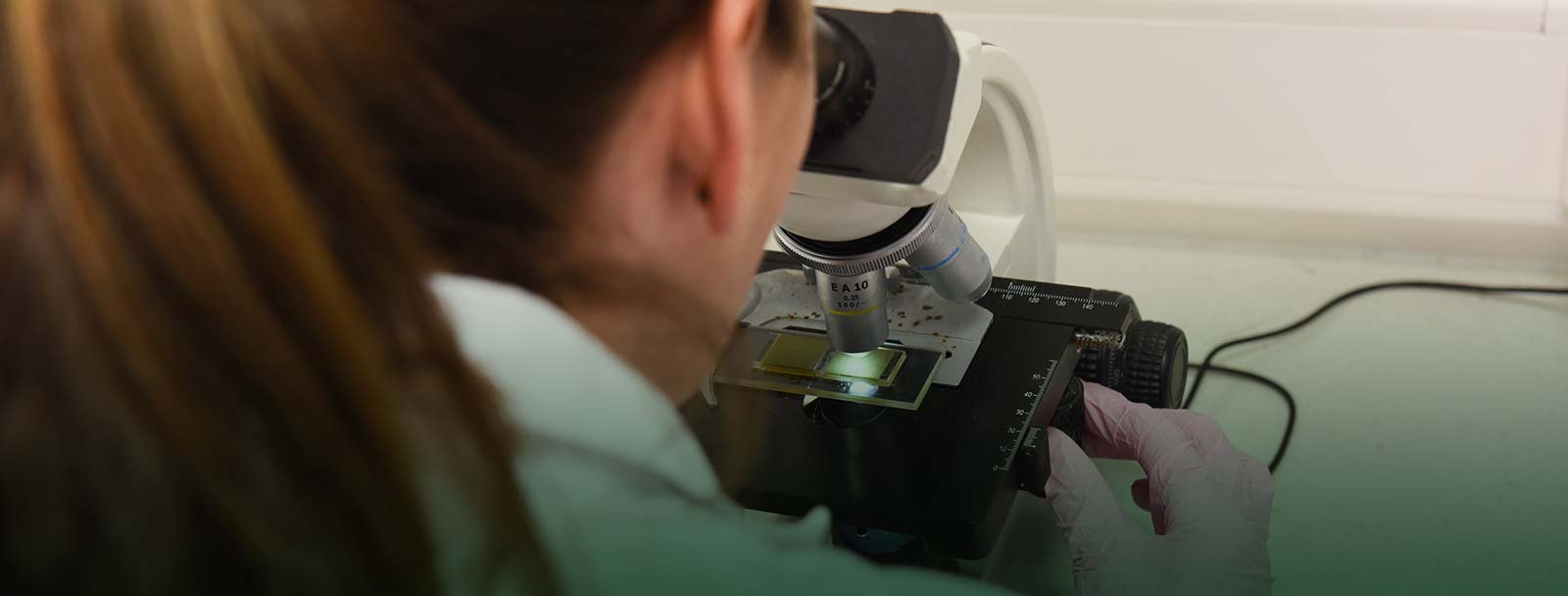
Laboratory Services
On some occasions your birds may require additional tests to diagnose specific problems. These tests include blood sampling, worm egg counts, parasite examination, feed sampling and in the event of a bird dying or severe disease post mortems may be necessary.
We offer advice on all of these tests, please ring 01392 872885, alternatively you must visit your own vet or if you near enough to one of our associated practices then you can register as a client.
If you have spoken to your own vet and you are aware which test you require you may purchase the sampling equipment here.
We strongly advise you have spoken to a vet or a field service person before purchasing any of this equipment if you have not used it previously.
You can purchase a Faeces Sampling kit from our shop.
It will sometimes be necessary to send birds for post mortem or samples to the laboratory for further investigation. Below is advice on the best methods for doing this.
Packaging of samples
- Post Mortems
Packaging birds or chicks for post mortem.
Please contact us if you would like to send us Post Mortems for sampling and we will be able to guide you through the process.
- Packaging of Laboratory Samples
Procedure for sending diagnostic samples:
- Place samples containing fluids in watertight screw top containers. This is the primary container.
- Surround samples in absorbent material/cellulose wadding or cotton wool. Fluid samples need to be surrounded in enough of this absorbent material to absorb all possible leakage in the event of damage.
- Place the wrapped samples in a leak proof plastic bag and seal. This is the secondary container and together with the absorbent material should be able to contain all the contents of the primary container. Ideally use a zip lock plastic bag.
- Complete the necessary submission forms and place outside of the zip lock sample bag.
- Place into a larger postal bag or box and label with the following information.
Senders Name & Address and the address of the relevant Laboratory.
Ensure the correct postage is applied to your package.
- Water Samples
Why take water samples?
It is important that the water supplied to your birds is of a high standard and clean. Birds will often drink preferentially from a stream or puddle and our clients often wonder why to bother with clean drinking water. Adult birds are less sensitive to infections in the water, but especially where you are rearing young stock indoors or in a more intensive system, warm water can harbour high levels of pathogenic bacteria. Header tanks can be a particular problem if not cleaned and covered as bacteria might multiply in a warm house. Bore holes are often not as clean as they should be and regular testing is a sensible precaution.
- Taking samples
For full potable (drinking quality water) i.e. Borehole, you are required to take a 500ml sample. If taking from a tap or stopcock, remember, if it has not been opened for some time there will be a build-up of bacteria present that can affect your results. Therefore, clean around the tap or stopcock, heat if possible or wipe with alcohol wipe. Allow the water to run for 1-2 minutes. Fill a 500ml sample pot to within 1cm of top. Label container and send to laboratory immediately for testing, packaged correctly to avoid any leakages.
For In-farm or Shed Samples you will need to take a 20ml sample. Clean around the end drinker line or nipple with an alcohol wipe. Remove bung from end of line, pipe or nipple. Run water into a bucket for 1-2 minutes and discard. Fill up sample container and then send to laboratory immediately.
- Blood Sampling
Blood testing allows your vet to investigate a wide range of diseases and develop a preventative vaccine program where necessary. Blood testing is not difficult but requires practice if it is not to cause pain to the bird. We would advise any bird owner who has not been trained to take your bird to a vet to be tested. If you are competent at blood testing, which is not a difficult task, then we can arrange for them to be tested.
You will need to be registered with us to have blood tests carried out, or ask your vet to send us blood samples for testing as required. We are very happy to discuss with your vet what blood tests we have available. We will be holding training courses on blood testing in the future.
When taking your blood samples, they should ideally be at least 2ml (i.e 3/4 full) to enable adequate separation of serum back at the laboratory.
Allow samples to clot at room temperature.
Ensure that the lids are fitted securely.
- Faeces samples
This at least does not require a vet! The sample kit contains gloves and packaging to send the sample to us for testing for worms and coccidial infection. Most importantly you need to take a representative sample of the faeces which means that one sample from a flock of 50 birds is not enough. We need a sample from a wide range of birds. Please make sure the bag is well sealed before posting to the lab!
- Feed sampling
We can arrange to test feed for oil, ash and protein. We can also check the levels of coccidiostat in the feed as well as checking the inclusion rates of various medications. Please contact us or your own vet for more details and to decide the test you require. It is important to ensure that a feed sample is representative of the feed being fed to the birds. A representative sample of about 1kg is required in a clean bag.

